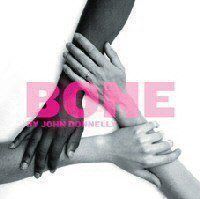This first play in the 2004 Royal Court's Young Writers Festival takes an oblique look at contemporary life.
The set is designed by Ultz, a guarantee of something unusual. In this case, it is a largely empty waiting room, seen through mirrored glass by an audience on two sides. This can be most unsettling, as is the opening which contains brief passages of speech interspersed by blackness and has the feel of an audacious Caryl Churchill experiment.
Three protagonists deliver monologues that only occasionally intersect. Their themes seem to have little in common but anger and loss are at the heart of each of them.
Brid Brennan plays Helen, an Irish farmer's wife who addresses her speech to her late husband. He was a victim of next door's foot and mouth and is a man whom she cannot live without. Suicidal at the start, sleeping pills and whiskey do not help. Her redemption can only come through the knowledge that he would wish her to plough on.
Don Gilet's Stephen is a rather bumptious marketeer who has lost his girlfriend. Despite his seeming nonchalance he is badly cut up and drink and lies seem the only solution. He too gets within a hair's breadth of suicide, only prevented by cowardice and lack of balance.
Finally, there is Jamie, a teenage army recruit on his last bender before leaving for an unnamed overseas war. Bryan Dick does well as an unpleasant everything-ist youngster led by braggadocio and his penis.
Surprisingly having tried to fight every man and lay every woman, he is ultimately the most sympathetic of the trio. This is a tribute to his love and protectiveness for his raped little sister.
John Donnelly's writing is often lyrical and the performances, particularly from Dick and Miss Brennan are strong. The monologues all make sense independently but the connections between them are none too clear. This means that the whole is no more than the sum of the parts and like each of the characters, there is a suspicion that the play may have a hole at its centre.
This review originally appeared on Theatreworld in a slightly different version
